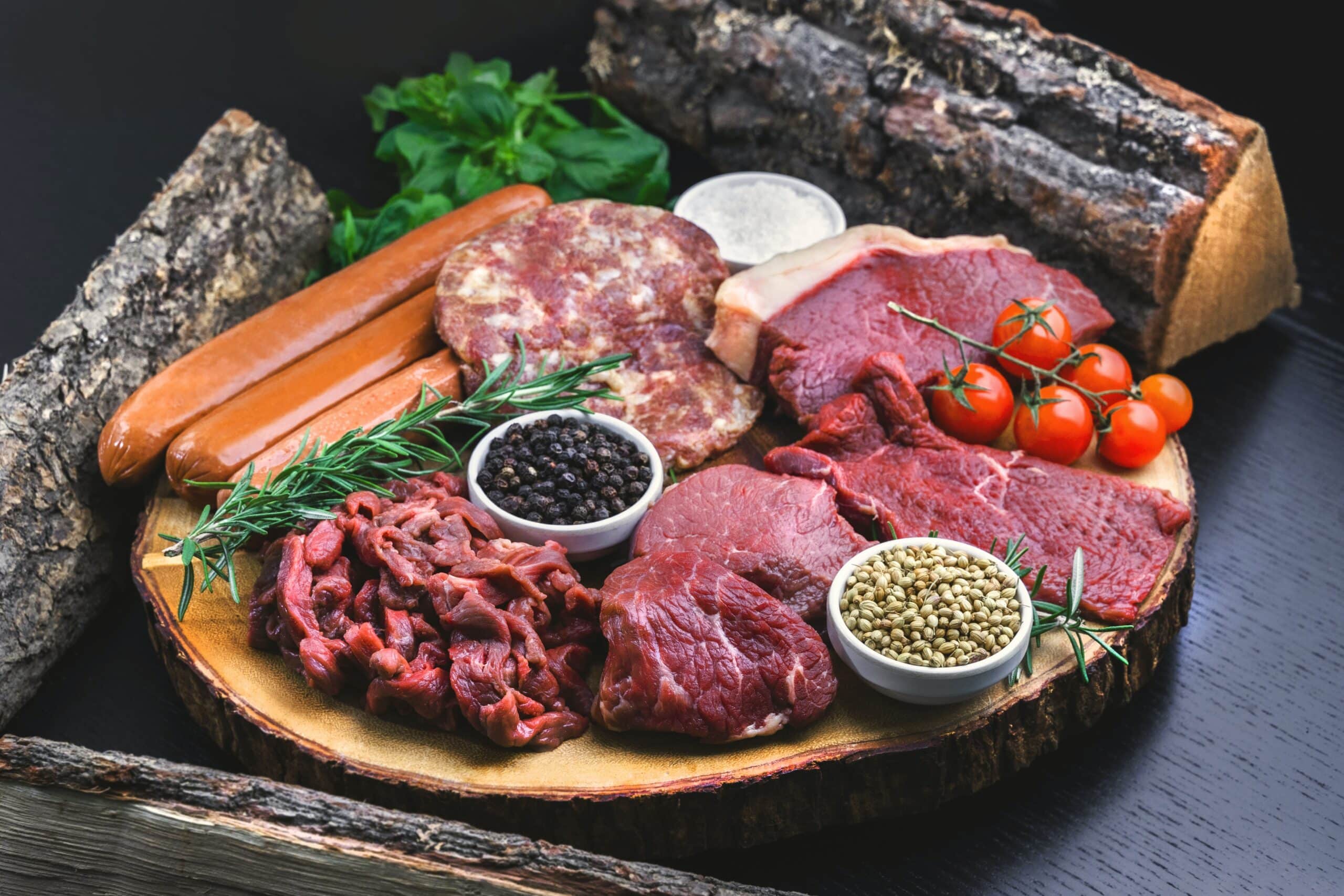What’s the Beef with the Carnivore Diet?
Think back to the days of our prehistoric ancestors, roaming the wild plains in search of their next meal. Picture them stalking their prey, sharpening their spears, and feasting on – you guessed it – meat. A carnivorous diet was the norm for our early human counterparts, and they seemed to fare pretty well. So, why not give it a shot ourselves?
Welcome to the world of the Carnivore Diet, where meat takes center stage and plant-based foods take a backseat. In this blog post, we’ll dive deep into the ins and outs of this controversial diet trend. Get ready for a witty and informative journey that might just change the way you think about what’s on your plate.
What is the Carnivore Diet, Anyway?
The Carnivore Diet, as the name suggests, is a hyper-focused approach to eating that emphasizes animal-based foods while excluding most (if not all) plant-based foods. That means goodbye to fruits, vegetables, grains, legumes, and anything else that sprouts from the ground or hangs from a tree.
What’s on the menu then? Well, if it used to have a pulse, it’s fair game. Think heaps of fatty steaks, juicy burgers, succulent pork chops, sizzling bacon, and even organ meats like liver – if you’re brave enough. It’s the dream diet for all you meat lovers out there.
The Meaty Benefits of the Carnivore Diet
While the science is still a bit murky on the long-term effects of the Carnivore Diet, its proponents swear by a range of potential benefits. Here’s an overview of the main claims:
Improved Weight Management
Struggling to shed those extra pounds? The Carnivore Diet might be the answer. By eliminating carb-heavy foods, the theory goes that your body will shift into fat-burning mode, leading to more efficient weight loss. Plus, the high-protein nature of the diet helps to keep you feeling satisfied and less likely to reach for those sugary snacks.
Enhanced Mental Clarity
Want to feel sharper and more focused? Advocates of the Carnivore Diet argue that cutting out carbs and relying on fatty cuts of meat as your primary fuel source can lead to improved brain function. They claim reduced brain fog, enhanced memory, and increased mental clarity as a result of this dietary switch.
Increased Energy Levels
Ever notice how you feel sluggish and bloated after a big meal packed with carbs? The Carnivore Diet aims to avoid that post-meal energy crash by nixing the carbs altogether. Instead, you’ll be running on heavy doses of protein and fats, which are touted as providing a steady and sustained energy supply.
Reduced Inflammation
If you suffer from chronic inflammation, the Carnivore Diet might be worth trying. By eliminating potentially inflammatory foods like grains and plant-based oils, this diet aims to calm the body’s immune response and reduce symptoms associated with conditions like arthritis and autoimmune disorders.
The Caveats – Carnivore Diet Critics Speak Out
While the Carnivore Diet has a loyal fan base, it also faces its fair share of criticism from nutrition experts and healthcare professionals. Let’s take a closer look at some of their concerns:
Missing Micronutrients
With such a heavy emphasis on animal-based foods, the Carnivore Diet can be significantly lacking in essential vitamins and minerals found in plant-based foods. Nutrients like fiber, vitamin C, and various phytochemicals and antioxidants can become in short supply. This imbalance can lead to micronutrient deficiencies and potential long-term health issues.
Questionable Gut Health
Our gut microbiome thrives on a diverse range of fibers and carbohydrates found in plant-based foods. By eliminating these foods altogether, the Carnivore Diet can lead to an imbalance in gut bacteria. This may result in digestive issues, such as constipation, and negatively impact long-term gut health.
Potential Increased Disease Risk
The long-term effects of a high-meat, low-plant diet are still unknown. Some researchers warn that the excess consumption of saturated fats and cholesterol found in animal foods could increase the risk of heart disease, high blood pressure, and certain types of cancer. It’s a red flag worth considering before diving headfirst into a meaty feast.
Long-Term Sustainability
Let’s face it, a diet that revolves around meat and excludes an entire food group isn’t the most varied or exciting. Many people find it challenging to sustain the Carnivore Diet in the long run due to the limited food choices and potential monotony. Plus, the environmental impact of a meat-heavy diet raises concerns about sustainability.
Is the Carnivore Diet Right for You?
Now that we’ve explored the meaty world of the Carnivore Diet from all angles, the question remains – is it the right choice for you? As with any dietary approach, it ultimately comes down to individual preferences and goals.
If you’re considering giving the Carnivore Diet a whirl, it may be wise to consult with a qualified healthcare professional or registered dietitian who can help guide you through the potential risks and benefits. They can also help you ensure that your nutritional needs are being met despite the dietary restrictions.
Remember, there’s no one-size-fits-all solution when it comes to nutrition. What works for one person may not work for another. So, don’t be afraid to experiment, listen to your body, and find the dietary approach that makes you feel your best – whether it’s with or without a carnivorous twist.
